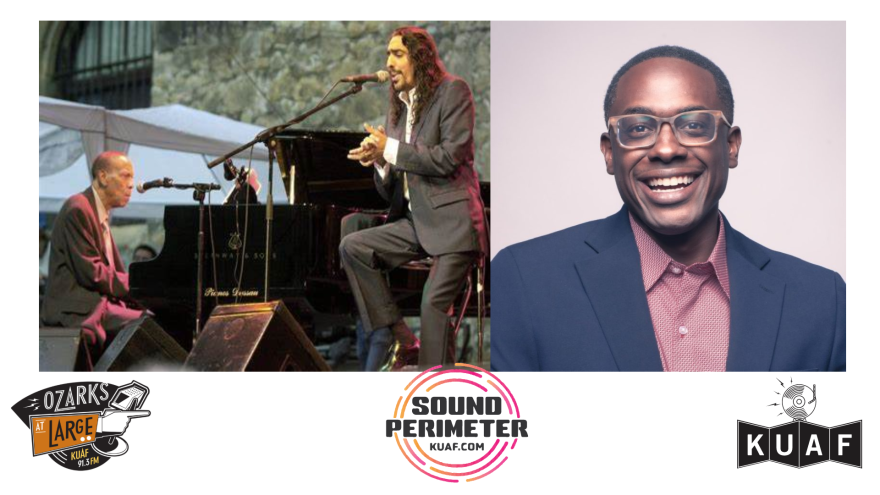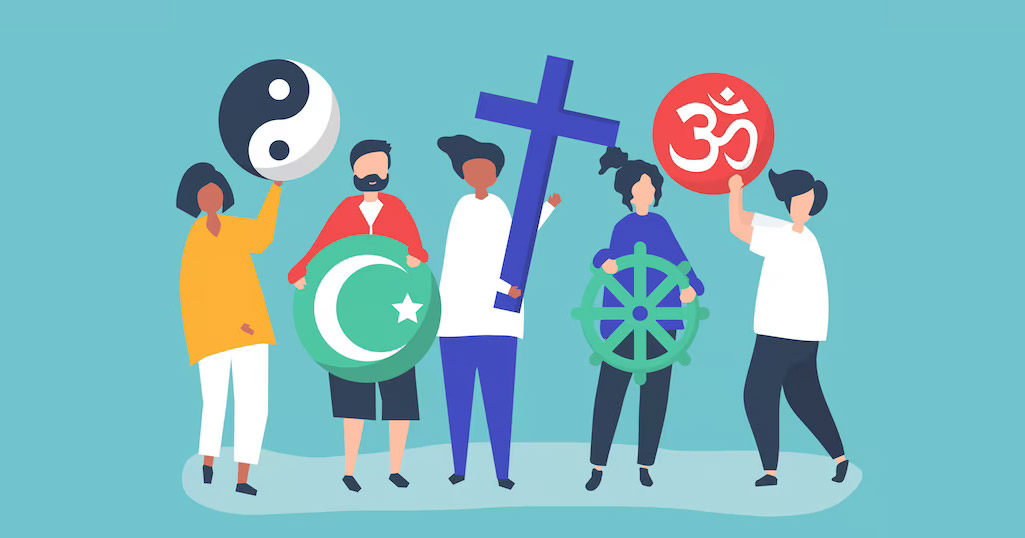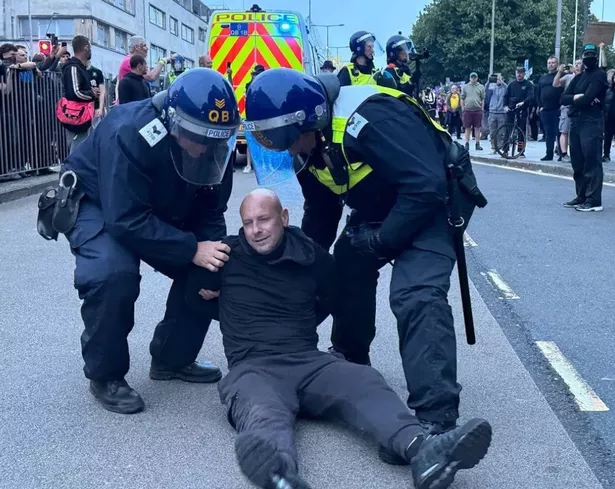Defining The Sound Perimeter: Music's Influence On Social Cohesion

Table of Contents
Music as a Foundation for Shared Identity
Music acts as a powerful glue, binding individuals together through shared experiences and preferences. This shared identity, fostered through musical engagement, strengthens community bonds and enhances a sense of belonging.
Creating a Sense of Belonging
- Shared musical preferences: Think about the fervent communities surrounding genres like punk rock, with their DIY ethos and rebellious spirit, or the globally connected K-pop fandom, united by their passion for a specific style of music and its associated artists. These groups demonstrate how shared musical tastes translate into strong social connections.
- Shared musical knowledge: Understanding the nuances of a particular genre, the history of a band, or the lyrics of a song creates a common language and shared understanding, enhancing group identity. This "insider knowledge" strengthens bonds and fosters a sense of belonging within the community.
- Sociological studies: Numerous sociological studies highlight the crucial role of shared musical experiences in creating strong community bonds. Research indicates a correlation between participation in musical activities and increased social capital, demonstrating the positive impact of music on community cohesion. For example, studies on the impact of community choirs have shown marked improvements in social well-being and a strengthened sense of community among participants.
Transcultural Understanding Through Music
Music transcends linguistic and geographical boundaries, acting as a universal language that fosters understanding and connection between people from different cultural backgrounds.
- International collaborations: Collaborations between musicians from diverse cultures, such as the fusion of flamenco and jazz, or the blending of traditional African rhythms with electronic music, create unique soundscapes that reflect a shared human experience.
- Global music festivals: Events like Glastonbury (UK) or Coachella (USA) bring together audiences from across the globe, sharing a common appreciation for diverse musical styles and fostering cross-cultural exchange. These festivals offer a microcosm of global culture, united by the power of music.
- Global music charts: The success of global music charts demonstrates the universality of musical appeal. The popularity of artists from diverse cultures on these charts underscores the ability of music to transcend cultural barriers and create a shared cultural experience.
Music's Power to Foster Emotional Connection
Experiencing music together – whether at a concert, a festival, or even through shared playlists – generates a collective emotional landscape that strengthens social bonds. This shared emotional experience is a cornerstone of social cohesion.
Shared Emotional Experiences
- Live music performances: The energy of a live concert, the collective catharsis of a shared emotional experience, amplifies feelings of unity and connection among the audience. This shared emotional resonance solidifies group identity.
- Collective mourning/celebration: Music plays a vital role in collective experiences of grief or joy. Funeral hymns, anthems of national pride, or celebratory songs all serve to unify a community through shared emotions.
- Neurobiological effects: Neurological studies have shown that music triggers the release of endorphins and oxytocin, hormones associated with bonding and social connection. This biological response strengthens the feeling of connectedness created by shared musical experiences.
Music as a Catalyst for Empathy
Music’s ability to communicate emotions powerfully, even those difficult to articulate verbally, makes it a potent tool for fostering empathy and understanding.
- Communicating complex emotions: Songs expressing grief, joy, anger, or love allow listeners to connect with the artist’s emotions, expanding their capacity for empathy and understanding diverse human experiences.
- Raising awareness of social issues: Music has often been used as a powerful vehicle to raise awareness about social issues, promoting empathy and social change. Protest songs, for example, can galvanize support for marginalized groups and encourage collective action.
- Songs promoting empathy: Songs about overcoming adversity or celebrating diversity can inspire empathy and understanding, particularly in contexts where direct communication might be challenging.
Music as a Tool for Collective Action and Social Change
Throughout history, music has served as a powerful tool for mobilizing people, fostering collective action, and driving social change. Its ability to unite and inspire makes it a significant force in shaping social cohesion.
Music in Social Movements
- Protest songs: Songs have been integral to countless social and political movements. From the Civil Rights Movement’s anthems to the anti-apartheid struggle’s music, songs have provided a voice for the voiceless and rallied supporters around a common cause.
- Collective efficacy: Music creates a sense of collective efficacy, empowering individuals to work together towards shared goals. The feeling of unity and shared purpose fostered by music can catalyze social change.
- Examples of historical impact: The power of music in social movements is undeniable. Consider the impact of Bob Dylan's protest songs during the 1960s or the role of music in the South African anti-apartheid movement.
Music's Role in Community Building Initiatives
Community music programs leverage music's power to foster social cohesion at the local level. These initiatives create spaces for shared creative expression and enhance community engagement.
- Community music programs: Community choirs, orchestras, or jam sessions create opportunities for people to interact, learn from one another, and build relationships, strengthening the social fabric of their communities.
- Collaborative music-making: The collaborative nature of many musical activities fosters teamwork, communication, and mutual respect, further enhancing social cohesion.
- Successful initiatives: Many community music programs have demonstrated positive impacts on social inclusion, reducing social isolation, and improving the overall well-being of participants.
Conclusion
Music's influence on social cohesion is multifaceted and profound. It provides a foundation for shared identity, fosters emotional connections, and serves as a powerful tool for collective action and social change. From fostering a sense of belonging within specific communities to bridging cultural divides on a global scale, music plays a pivotal role in shaping our social landscapes. Let's continue exploring music's influence on social cohesion and harness its power to build stronger, more connected communities. Understand the power of music to improve social cohesion – explore its impact further!

Featured Posts
-
 Sydney Sweeney Projects After Echo Valley The Housemaid And Her Recent Split
May 22, 2025
Sydney Sweeney Projects After Echo Valley The Housemaid And Her Recent Split
May 22, 2025 -
 The Underrated Western Neo Noir Starring Dennis Quaid Meg Ryan And James Caan
May 22, 2025
The Underrated Western Neo Noir Starring Dennis Quaid Meg Ryan And James Caan
May 22, 2025 -
 The Goldbergs Impact And Cultural Significance
May 22, 2025
The Goldbergs Impact And Cultural Significance
May 22, 2025 -
 Jail Sentence Appeal For Tory Councillors Wife Following Migrant Rant
May 22, 2025
Jail Sentence Appeal For Tory Councillors Wife Following Migrant Rant
May 22, 2025 -
 Vybz Kartel To Make History With New York Concert
May 22, 2025
Vybz Kartel To Make History With New York Concert
May 22, 2025
Latest Posts
-
 Dexter Revival Two Classic Villains Return
May 22, 2025
Dexter Revival Two Classic Villains Return
May 22, 2025 -
 Dexter Original Sin Steelbook Blu Ray Pre Resurrection Viewing
May 22, 2025
Dexter Original Sin Steelbook Blu Ray Pre Resurrection Viewing
May 22, 2025 -
 Original Sin Finale Re Examining The Debra Morgan Storyline In Dexter
May 22, 2025
Original Sin Finale Re Examining The Debra Morgan Storyline In Dexter
May 22, 2025 -
 The Lasting Impact Of Debra Morgan Original Sin And Dexters Regret
May 22, 2025
The Lasting Impact Of Debra Morgan Original Sin And Dexters Regret
May 22, 2025 -
 Dexter Revival New Trailer Release Date Hints
May 22, 2025
Dexter Revival New Trailer Release Date Hints
May 22, 2025
